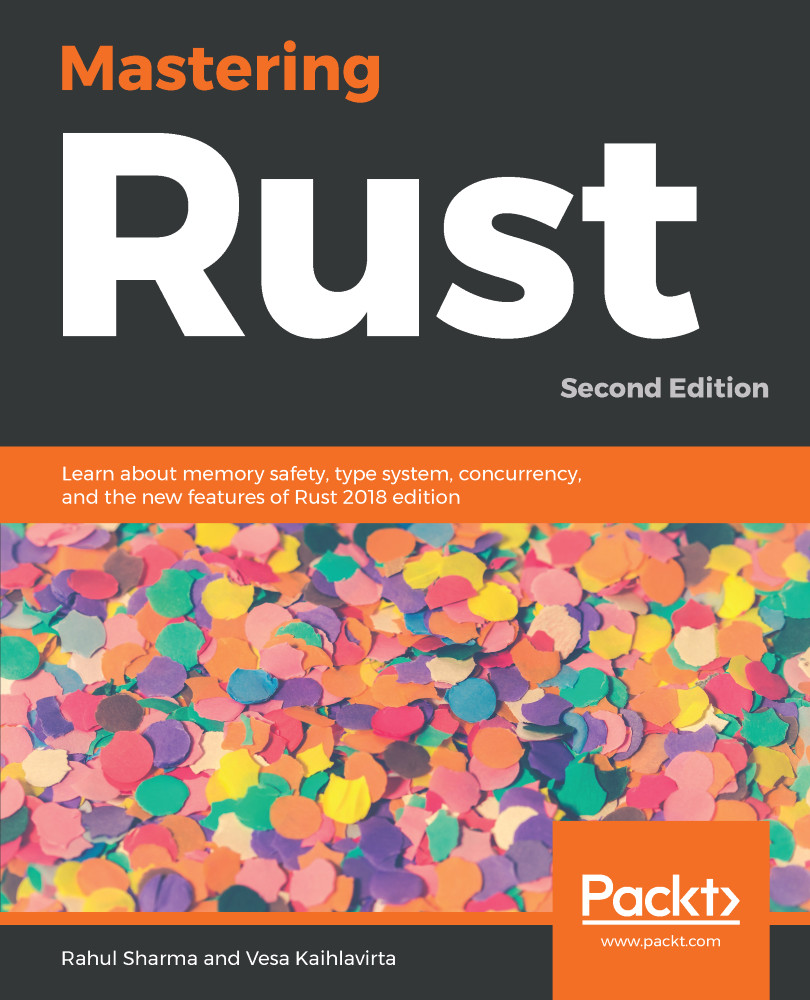In this section, we'll see how Python can also call Rust code. The Python community has always been a heavy user of native modules such as numpy, lxml, opencv, and so on, and most of them have their underlying implementations in either C or C++. Having Rust as an alternative to native C/C++ modules is a major advantage both in terms of speed and safety for a lot of Python projects out there. For the demo, we'll build a native Python module that's implemented in Rust. We'll be using pyo3, a popular project that provides Rust bindings for the Python interpreter and hides all the low-level details, thus providing a very intuitive API. The project is on GitHub at https://github.com/PyO3/pyo3. It supports both Python 2 and Python 3 versions. pyo3 is a fast-moving target and only works on nightly at the time of writing...
-
Book Overview & Buying

-
Table Of Contents

Mastering Rust - Second Edition
By :

Mastering Rust
By:
Overview of this book
Rust is an empowering language that provides a rare combination of safety, speed, and zero-cost abstractions. Mastering Rust – Second Edition is filled with clear and simple explanations of the language features along with real-world examples, showing you how you can build robust, scalable, and reliable programs.
This second edition of the book improves upon the previous one and touches on all aspects that make Rust a great language. We have included the features from latest Rust 2018 edition such as the new module system, the smarter compiler, helpful error messages, and the stable procedural macros. You’ll learn how Rust can be used for systems programming, network programming, and even on the web. You’ll also learn techniques such as writing memory-safe code, building idiomatic Rust libraries, writing efficient asynchronous networking code, and advanced macros. The book contains a mix of theory and hands-on tasks so you acquire the skills as well as the knowledge, and it also provides exercises to hammer the concepts in.
After reading this book, you will be able to implement Rust for your enterprise projects, write better tests and documentation, design for performance, and write idiomatic Rust code.
Table of Contents (19 chapters)
Preface
 Free Chapter
Free Chapter
Getting Started with Rust
Managing Projects with Cargo
Tests, Documentation, and Benchmarks
Types, Generics, and Traits
Memory Management and Safety
Error Handling
Advanced Concepts
Concurrency
Metaprogramming with Macros
Unsafe Rust and Foreign Function Interfaces
Logging
Network Programming in Rust
Building Web Applications with Rust
Interacting with Databases in Rust
Rust on the Web with WebAssembly
Building Desktop Applications with Rust
Other Books You May Enjoy
